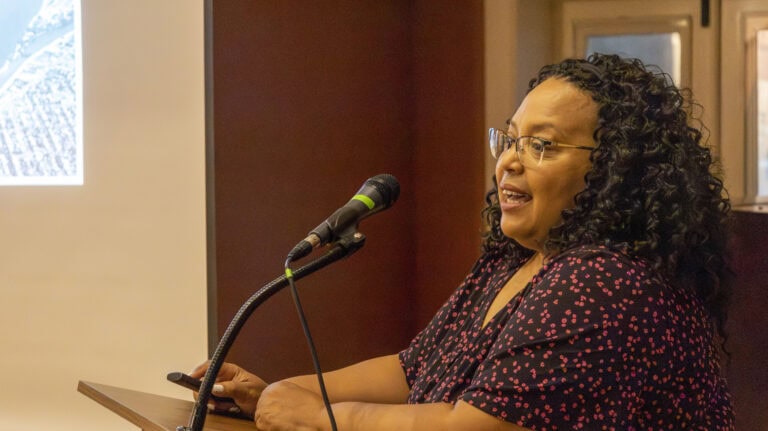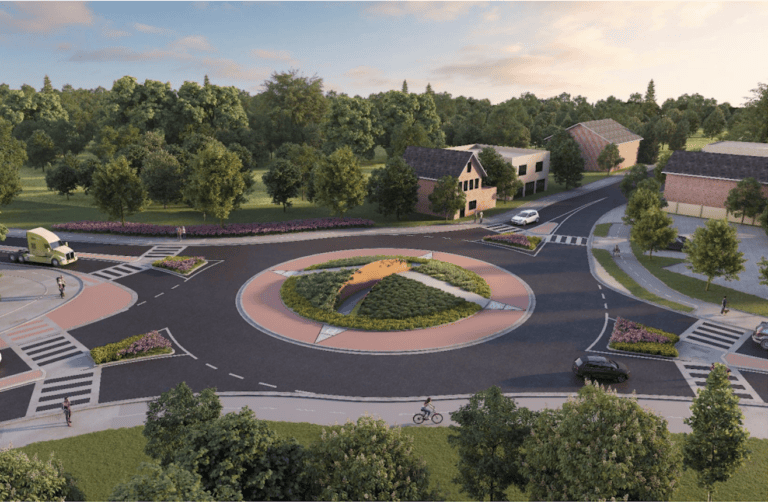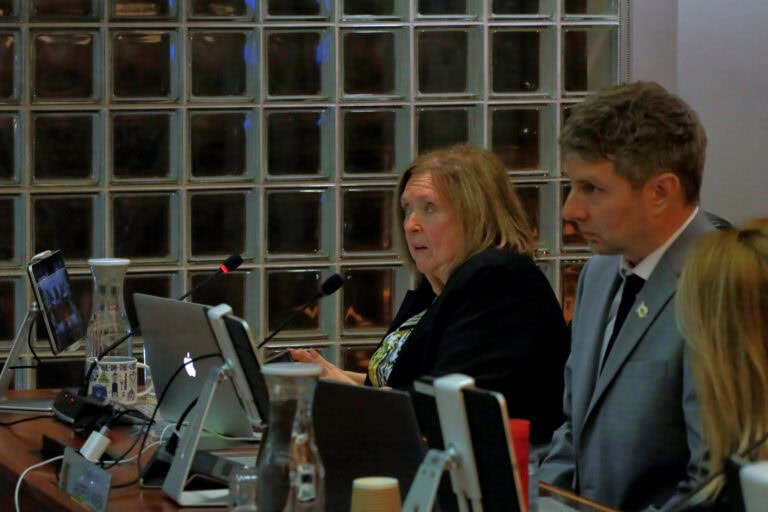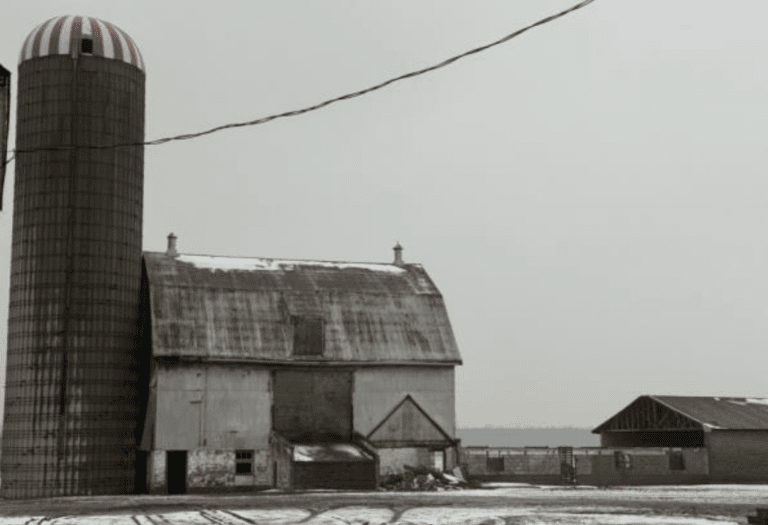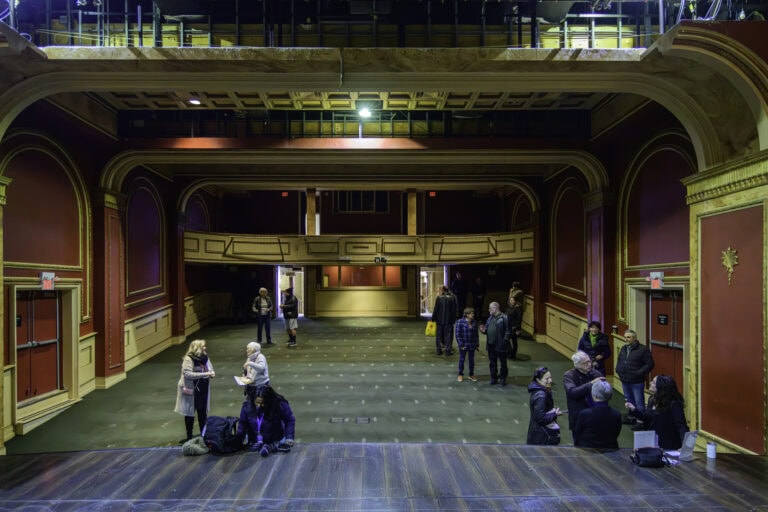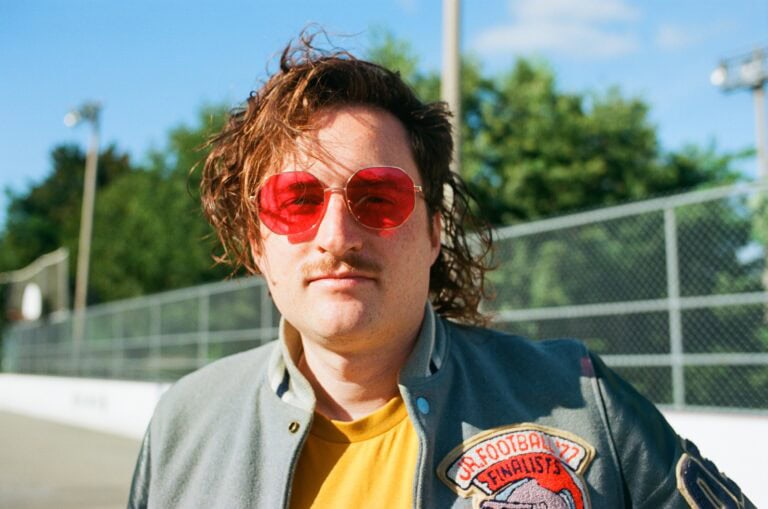Randy Norris says he's been hunting coyotes in Niagara-on-the-Lake legally for 30 years.
It's a hobby he started while living up north more than 35 years ago and has become a big part of his life. He says has about $10,000 invested in tracking systems for his eight hunting hounds and several thousand more in various equipment.
His wife, daughter and grandkids even come out to hunt with him and his hounds.
Norris and a group of fellow hunters use his dogs to track coyotes and get them out in the open to be shot. They do it for sport mainly and some sell the pelts. But due to a declining market for fur, the hides are mostly kept by the hunters. The rest of the carcass is simply left in the woods for other animals to eat.
Norris said there's always been backlash to his hobby, but now he's speaking out after vocal criticisms both in-person and online.
Twice now he said police have been called by the same farmer who claimed he was illegally hunting on a private property. However, Norris did in fact have permission from the land owner to hunt the coyotes and claims he was never hunting elsewhere.
On both occasions, things got heated. On Feb. 5, one of Norris' fellow hunters had mistakenly parked in a driveway on Line 6 Road, which caused a dispute between hunters and the land owner, Warren Dyck, who has been strongly against the hunting. During the incident, Norris said Dyck blocked a hunter's car in the driveway for more than two hours.
Police ended up giving them both a warning.
In response to questions from The Lake Report about the incident, Niagara Regional Police Const. Jesse Vujasic said, "Trespassers were warned not to come back and (the) owner was advised not to block people in."
"The one that got the stern warning was (Dyck)," Norris said.
Norris maintains he wasn't trespassing and was hunting on the adjoining property with permission from the owner, Ed Unger.
When contacted by The Lake Report, Unger, who operates an apiary and small-scale farm on the land, said Norris "definitely" has permission to hunt on his property.
"Yes, completely 100 per cent authority to go on my property, wherever he needs or whenever he needs. Because I trust hunters. They are very trustworthy. They know what they're doing," Unger said.
On the second occasion, Feb. 26, Norris said Dyck was actively seeking out his hunting group and again accused them of hunting on another property illegally. However, upon phoning the owner of the property, he discovered Norris did in fact have permission for his hunt there as well.
On that occasion, police were stern with Dyck. In a video obtained by The Lake Report, an officer can be heard telling him to go home.
"It's none of your business if they're on other people's property," the officer says.
"That's true," Dyck replies.
"So then, go home," the officer says.
Reached by The Lake Report on Tuesday, Dyck said he's not anti-hunting, but is concerned about the safety of farm workers, kids on ATVs and says as a grape grower he actually likes the coyotes on his land, as they help with rodent and rabbit problems.
Rabbits will gnaw at grape vines and cause them to die, Dyck said.
"We don't want the rabbits in the vineyard, but we'd like the coyotes in the vineyard," he said.
While he does recognize there are farmers who actually want coyote hunters on their land, "There's a lot of farmers that don't want them either."
Dyck said though he knows the vehicles and licence plates of the hunters, he isn't actively seeking them out to get into confrontations.
"I'm not seeking them out. I just see them. Like when I go and look at one of my properties, they're there. I never seek them out," he said.
Regarding safety concerns, Norris said there has never been an incident of someone getting hurt in his 30 years of hunting in NOTL.
Dyck also said hunters don't always seek permission and questions whether they have permission for all the places they hunt.
"They were hunting on (my) property. I saw them. But by the time I call 911, they're gone," Dyck said.
Norris said he's not hunting in places where he doesn't have permission, but occasionally his dogs do run onto other properties and he tries to get them off or lead them to the road.
"Sometimes the dogs pass onto people's property because they can't read the sign," he said. "If they're chasing a coyote, they'll pass on it. And what we do is we'll go around the block and we'll catch the dog when it comes to the road. Nobody shoots on the property. Nobody goes on the property."
He said he and his hunters go "above and beyond" to make sure they're doing things legally and safely. All of his dogs have satellite tracking systems and the hunters all carry small game licences which permit hunting of coyotes.
"We need a licence, we need permission," he said.
Norris said he understands people's concerns for safety around hunting, but takes offence at people who have called his group "thugs."
"We're not thugs, we're doing a legal activity," he said. "And if you check with the NRP, 30 years I've been down there, and I've never got a trespassing charge, ever. And no house has been shot and nobody's dog's been killed."
While some people might be alarmed to see a gun, "Niagara-on-the-Lake where I hunt is rural. I don't care what people say. It is rural and you're allowed to hunt there."
Norris said he has permission to hunt hundreds of acres in NOTL, including 200 acres at a livestock farm and another 500 acres from a vineyard owner who lives in Toronto.
He said some people who complain have "their own agenda" and he has his, which is to keep hunting legally.
There are several benefits to reducing coyote populations, he said. Coyotes can kill farm animals like chicken and sheep, and can be a nuisance to farmers. Many also carry mange, he said, which can spread to other animals, like dogs.
Unger said he encourages Norris to hunt on his property, as the coyotes often kill his farm animals. One year he lost 18 lambs to coyotes, and just last weekend, coyotes killed 15 of his chickens, he said.
"It's terrible with the coyotes here," Unger said.
"We have small dogs, too, and we cannot let them out of sight because the coyotes might take them. The coyotes have to go."
He said his neighbours have also been complaining for a long time and can't keep any pets because the coyotes are so aggressive.
Norris said coyotes left unchecked are the "top of the food chain" in Niagara and can also be harmful to the deer population.
He believes his group of coyote hunters is partly responsible for an increase in deer in recent years.
His group hunts from late December to the second week of March, and takes about 30 to 40 coyotes per season. Some years he's taken as many as 60.
"We have them for a couple months and then we leave them alone for the rest of the year. We just thin them out a little bit," he said.
"All these people in Niagara-on-the-Lake that are seeing all the deer and all the rabbits and all the pheasants now, it's because we're putting it back into balance because I would go down there and every grape row there would be a coyote track. You wouldn't see a pheasant. Very rare. You wouldn't see deer, never. Now you're seeing all that because it's all back to balance."
During his hunts, he brings along four of his dogs, who help locate the coyotes.
"The dogs will actually get the coyote up and running, and then we chase them onto the property that we have permission for and then we harvest the coyote. That's how it works."
He said sometimes larger male coyotes do challenge his dogs.
"He doesn't run from much in the wild, so he'll only run for so long, and then he'll stand his ground and fight with the dogs. Sometimes the dogs get a few lickings, but not very often," he said.
"These hunting dogs have a different mindset. But the craziest part is they chase the coyote, and then they get back to the truck and they're like a lap dog. They'll sit right in your lap, lick your face."
During a visit to his home in Welland, it's clear he loves his dogs. His yard is built into a kennel attached to a fenced-in field for them to roam and play. The hounds are extremely friendly and clearly happy.
He said he's never had a dog seriously injured by a coyote.
"I know there's a lot of people that aren't real cool on what we do. I get that. But you know what, there's a lot of people that want us doing what we do."
Norris said he's been to town hall meetings and faced opposition before, but that in the end, people need to agree to disagree.
He said he gets the most satisfaction not from the killing, but from watching his dogs hunt.
"I like watching my dogs chase them. They're so smart," he said, adding he thinks it's a "sporting" way to hunt. Many coyotes get away in the end.
It's not a cheap hobby either.
"I've got a lot of money invested. That's why I'm so passionate about it and that's why I get a little bit upset when people are trying to make us look bad. Because we're not. We're not trying to bother anybody. We're just out for a Saturday or a Sunday to enjoy our day."
What animals can be hunted and how is determined by wildlife management units. In Niagara, open season for coyotes is all year, with no tags required.
"In areas where a tag is not required and there are no harvest limits, you may hunt co-operatively in a group without restrictions on the number of animals harvested or who can take them," the regulations say.
However, Ontario's hunting regulations say, "It is illegal to abandon or otherwise allow the pelt of a fur-bearing mammal to spoil to be destroyed."
Norris said the hides of the coyotes are typically tanned and hung in hunting rooms.
And the answer to the looming question: No, they don't eat coyote meat.




